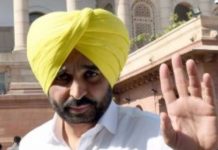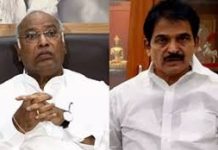Weighing The Scale Of Justice

Photo: Ambarin Afsar
“Decline the offer,” his father bluntly told BILAL NAZKI just a day before the latter was to be sworn in as a judge of the Jammu & Kashmir High Court in January 1995. “Being a judge needs the highest integrity and you may not always display it.” But Nazki humbly urged his father, a two-time Sahitya Akademi award winning poet and author, to let him become a high court judge. At which, the father held out the Holy Quran and administered an oath to his son: “Weigh the scales of justice as a goldsmith weighs the gold.” The next day, Nazki went to court and was sworn in.
In his nearly 15-year judgeship with the four high courts of J&K, Andhra Pradesh, Bombay and Orissa until his retirement last November, Nazki never let his father’s profound wisdom leave him. “My father was both deeply secular and deeply religious,” Nazki says. His other influences range from Socrates and Plato to Descartes and Spinoza. One of the most outstanding high court judges in recent history, Nazki is celebrated for having provided judicial relief to tens of thousands of the poor and the disadvantaged wronged by the system.
Ironically, Nazki retired as Chief Justice of the Orissa High Court only after holding that job for four days. It certainly rankles that despite his brilliant track record, he never found himself in the running for the Supreme Court. A native of Srinagar, Nazki was set to join the Aligarh Muslim University to study philosophy when a community elder forced him to take up law. “No one in my family had ever studied law in generations,” he says, adding candidly, “I was an average but honest lawyer.”
In 1991, Kashmiri militants abducted and pumped four bullets in his stomach. He escaped after they left him for dead. He was in hospital for two months. Perhaps this attention helped him become the Advocate General of the state. In 1995, he was elevated to the high court. Less than two years later, he moved to the Andhra Pradesh High Court, where he passed several historic judgements, including the order that the police must compulsorily file an FIR in case they kill alleged criminals in “encounters”, and the police claim must then be independently verified.
Nazki spoke to AJIT SAHI of TEHELKA. Excerpts:
How do you view the process of appointing chief justices of high courts and judges to the Supreme Court?
The policy for such appointments needs a relook. I have been involved in the decision- making for elevating two dozen judges at two high courts. But I am not satisfied with it. I was a judge for nearly 15 years before I could be chief justice, and that too only for four days. Another judge to whom I need not be inferior may become a chief justice after only eight years.
The seniority of a judge is considered from his original high court, in my case, Jammu and Kashmir. So although I served in J&K only two years and at Andhra Pradesh High Court for 10 years, my chances of becoming chief justice of a high court rested on my seniority in J&K.
It Rankles That He Never Found Himself In The Running For The SC In Spite Of His Brilliant Record
Let me tell you about a senior. Justice VK Gupta served nine years as chief justice in Himachal Pradesh, Jharkhand and Uttarakhand but was not elevated to the Supreme Court until he retired in 2009. From 2002, when Justice RP Sethi retired from the Supreme Court, J&K had no representation in the Supreme Court. Still, Justice Gupta wasn’t elevated. Why? Secondly, Kashmir has a larger population than Jammu and a bigger bar. Yet, all the four judges from Jammu & Kashmir High Court who went to the Supreme Court were from Jammu, including AS Anand, who became Chief Justice of India (CJI).
Are you suggesting a bias?
I must clarify I am not suggesting either a regional bias or a communal one. These four were very good judges. It was a manipulation achieved, in my view, by a person who was very powerful in the Indian judiciary for a very long time. In the last 25 years, six judges from J&K have become high court chief justices, four from Jammu and two from Kashmir. BA Khan, the other from Kashmir besides me, was chief justice for only one-and-a-half months. I was chief justice for four days. Whereas the other four were chief justices since 1984 until last year. Three of them — Anand, Sethi and TS Thakur — were elevated to the Supreme Court. I was Acting Chief Justice of the Andhra Pradesh High Court for eight months. My immediate deputy was Justice Sudarshan Reddy. He is now in the Supreme Court for more than two years. Another judge junior to me in Andhra Pradesh was Justice J Chalmeshwa. He was high court chief justice for more than two years. These things need to be debated and discussed. This has to be somehow addressed.
So how can the system be reformed?
A law is necessary. Many judges feel this. But you don’t talk when you are in the robes. Earlier, the powers to make the appointments lay with the government. In 1992, Supreme Court judge JS Verma, who later became CJI, devised the method of appointment by the collegiums. This hasn’t had such good results.
Should there be all-India seniority?
No. This is a pluralistic and federal country and every region should have representation in the Supreme Court. For example, Allahabad High Court has 170 judges whereas Bombay has 75. An all- India system would unduly favour Allahabad judges. All I say is that the policy has to be debated. But the judges can’t start an internal debate. It will give the impression that the judiciary is at loggerheads with itself. I have never talked in 15 years, even to my friends. Even after retirement, a judge should not say something that discredits the institution.
Mustn’t judges declare their assets?
I don’t object to the demand. But according to service rules, even bureaucrats and police officers must declare their assets. You don’t need to impeach them to remove them. But how many are removed? One of the greatest judges of the last century, Lord Denning, said someone has to have the last word. Let the judges be that. But more importantly, the litigant should believe I’m honest even if rule against him.
How best can a judge play his role?
I would often say in court that this is not a file; it is a human being. If a judge feels that, he will find a way. A judge should feel for a litigant like a doctor would for his patient. In Kashmir, a sweeper approached my court against her dismissal. I was shocked to find she was paid Rs 25 a month. I stayed her sacking and ordered the government to pay Rs 30 a day, not just to her but to all 40,000 staff like her working in schools and hospitals. At an average of five to a family, I would say my order helped two lakh people. It gave me far greater satisfaction than most others.
‘The system of appointing judges by a collegium hasn’t had such good results. I am not satisfied’
In Andhra Pradesh, I found that compensation had not been paid even 20 years after thousands of acres were acquired. As Chairman of the Legal Services Authority, I took the cheques to the villages. We couldn’t even locate 60 claimants. When I gave an 85-year-old man a cheque for Rs 3 lakh, he garlanded me. I said to him, “You are patient. I deserve a garland of shoes not flowers.” In another case in Maharashtra, two men were still in jail five years after being acquitted of a murder charge as they could not pay the bail. I waived the bail and ordered the government to pay Rs 1 lakh as compensation.
Who is a good judge?
Once Abraham Lincoln jumped out of his carriage to save a puppy from a pit. When asked why he didn’t let his security do that, Lincoln said he felt a pain in his heart for the pup. A good judge is one who feels a pain in the heart. I look out of my window and see poor people sleeping on the pavements. I get a luxurious flat because I’m a judge. What about them?
Two schools of thought exist among the judges. One says nothing is black and white — keep room to come out [of a ruling]. Another says law must be black and white. I belong to the latter. A few years ago [then President APJ] Abdul Kalam told a judicial officers’ conference — we must rule in a language the litigant understands. I must have decided 60,000 cases. At least, people understand what I said.
Why is judicial merit declining?
Before their elevation, most judges are lawyers usually specialising in one kind of practice. As judges, though, they have to rule on all kinds of cases. So judges learn from the bar. If the quality of the bar goes down, so does the judges’. Once in Andhra Pradesh, I spent weeks studying chemistry before giving life imprisonment to a scientist who applied mercurial salts to his wife’s vagina, slow poisoning her to death.
What most ails the judiciary?
The delays are too long and costs of litigation too high. Most people are just not aware of their legal rights. We don’t have enough judges. Is it realistic to have 14,000 judges for more than one billion people? They decide one crore cases annually. What more do you expect? More than three crore cases are pending across India. Every year, we add about 50 lakh new cases. An Australian judge once boasted to me that he had decided 11 cases that year. I told him I decided 20 a day. Stunned, he asked, “How do you do it?”
‘It is not a file. It is a human being. A judge should feel like a doctor feels for his patient’
Our judges are among the most efficient in the world. I don’t think any judge works less than 18 hours a day. We utilise our vacations updating ourselves on law, writing judgements and attending meetings because the judiciary has to be administered. These facts don’t come out because judges don’t speak out.
How can these problems be resolved?
There is no way to regulate litigation cost unless the bar does it itself. For those who can’t afford [expensive] lawyers there is a ridiculous mechanism — the Legal Services Authority. On one side you have a capable lawyer — on the other is a lawyer who is paid Rs 500. You are not providing any real legal assistance but only technical assistance. The Legal Services Authority needs a lot of funds to engage experienced lawyers for those who cannot afford them.
How should the courts react to insurgencies such as the Naxal violence?
Even in the worst of conditions, the State must act according to the rule of law. If it doesn’t, it will complicate the problem. The State must be the first to honour the rule of law. The citizens must be the second. I have first-hand knowledge of the militancy in Kashmir. Those who are not sympathisers of the militants help them. Suppose you are a law-abiding citizen and four people with guns enter your house forcibly in the dead of the night, force you to make food and ask for keys to the car and for money. But police suspect you to be militants’ sympathiser. People feel police should protect them, not harass them.
Once the judiciary stood for workers’ rights. Now it rules for big businesses.
The shift is attributable to the belief that even the condition of the poor and the downtrodden can be improved if overall economics is improved. So if you allow a person to have an industry, you also see how much employment it will generate. There is a shift in government policy. Judges must have been influenced by it.
Why are the Indian police so terrible?
The police are impossibly overburdened. They haven’t been trained. In the US, the police begin with a clue and look for suspects through it. In India, police begin with a suspect and look for clues through him. The police here know no investigating techniques except beating the suspects. How many people who have read psychology work in the police? Ideally, police should only maintain law and order and prevent crime. But once crime occurs, another agency should investigate it.
Is there hope for the judicial system?
It will take us time to fully establish the rule of law because we are only a 60-yearold democracy. You are not born a democracy. You grow into it. In fact, our country is on the right path. Such a phase had been seen in the US and the UK, too.
ajit@tehelka.com













